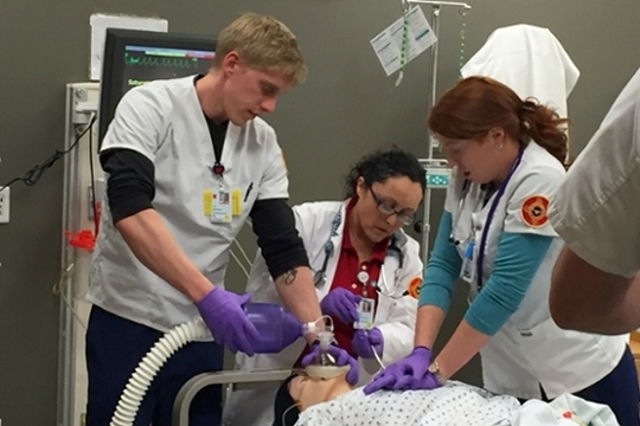
Nursing ETDs
Publication Date
Fall 10-1-2016
Abstract
The purpose of this case study was to describe individual and organizational perspectives on the state factors and political context impacting access to rural health care services in Idaho. Approximately 50 million Americans, roughly 20% of the United States population, live in rural areas (U.S. Census Bureau, 2012). For over 100 years, U.S. rural residents have experienced health disparities and health care access barriers (De Alessi & Pam, 2011). Rural residents evidence greater health risks, fewer health care providers, poorer health outcomes, and greater mortality than most urban residents (Jones, Parker, Ahearn, Mishra, & Variyam, 2009). Since many rural health care policies are implemented at the state level, state-level factors, such as health care delivery systems and the political context of health care, influence policy outcomes and rural health care access (Gray & Hanson, 2004; Jacobs & Callaghan, 2013). Although state-level rural health care access barriers are well documented, these have not been studied qualitatively in relation to state political context.
This case study employed narrative and thematic analyses to identify state-level factors and the political context that diverse stakeholders and interest groups perceive to impact rural health care access in Idaho. The study was developed from the analysis of twenty stakeholder interview transcripts and seven stakeholder group websites and the documents made publicly available on these websites. Stakeholders identified six state factors significantly impacting access to health care services in rural Idaho: the economy, rural/frontier geographic features, rural patient population, rural health care system, interest groups/policy voices, and the primary care provider shortage. Surprisingly, stakeholders only noted physicians as a solution to the workforce shortage, failing to mention nurse practitioners. Interest group websites and their associated documents illuminated four state factors related to the political context in Idaho: a narrative of state sovereignty, a narrative of medical sovereignty, the financial viability of health care in Idaho, and relationships of dependence and competition among key stakeholders. This case study poses questions to the profession of nursing about its priorities in developing an independent, compelling narrative to advance access to rural health care in and beyond Idaho.
Degree Name
Nursing
Level of Degree
Doctoral
Department Name
College of Nursing
First Committee Member (Chair)
Dorinda Welle, PhD
Second Committee Member
Nancy Ridenour, PhD, RN, APRN, BC, FAAN
Third Committee Member
Keith Mueller, PhD
Fourth Committee Member
Shana Judge, JD, PhD
Keywords
Rural health access, state-level policy, rural stakeholders, organizational stakeholders, organizational narratives, politics of policymaking
Language
English
Document Type
Dissertation
Recommended Citation
Prengaman, Molly Vaughan. "A CASE STUDY OF INDIVIDUAL AND ORGANIZATIONAL STAKEHOLDER PERSPECTIVES ON STATE FACTORS IMPACTING ACCESS TO RURAL HEALTH CARE SERVICES IN IDAHO." (2016). https://digitalrepository.unm.edu/nurs_etds/34
